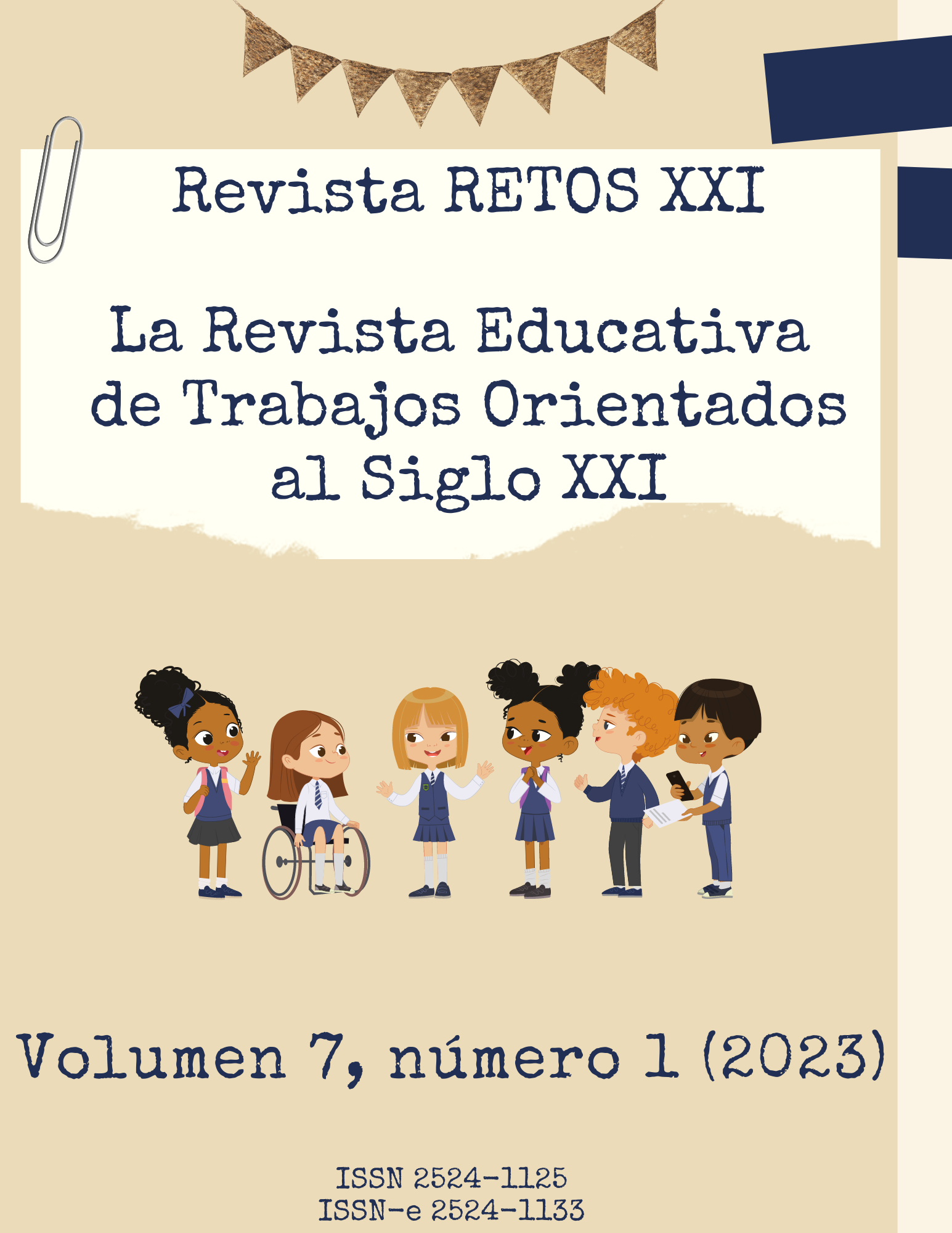Exploratory Factorial Model of Knowledge in at a university in central Mexico
DOI:
https://doi.org/10.30827/retosxxi.7.2023.26963Palabras clave:
Culture, institutionality, leadership, network, layerResumen
Organizational development and knowledge management have been appreciated from the relationships between their factors. In this sense, knowledge networks explain learning from a factorial structure, considering the differences between the parties involved. A non-experimental, cross- sectional and exploratory study was carried out with a non-probabilistic selection of 300 students, managers and teachers from a public university in central Mexico. The participation of the sample in the system of professional practices and social service was the inclusion criterion. The results show a factorial asymmetry of one input layer unit for three output layer units, suggesting that there is a significant degree of learning around the knowledge network. However, there are areas of opportunity around the hidden layer, since its units reveal information processing that reduces the uncertainty of the input layer and amplifies the knowledge of the output layer. The implications of the study results for educational policies suggest academic, professional, and labor training oriented by collaborative management.
Descargas
Citas
Acar , Z. and Acar , P. 2014. Organizational cultural types and their effects on organizational performance in Turkish hospitals. Emerging Markets Journal, 3, 1-15 http://dx.doi.org/10.5195/emaj.2014.47
Anicijevic , N. 2013. The mutual impact of culture and organizational structure. Annals of Economics, 58 (198), 35-60
Carreón, J., Hernández, J., Bustos, JM and García, C. 2017. Business promotion policies and their effects on the perception of risk in coffee growers in Xilitla, San Luis Potosí, central Mexico. Poiesis , 32, 33-51
Cruz, O., Arroyo, P. and Marmolejo, J. 2016. Technological innovations in logistics: inventory management, information systems and operations outsourcing. In M, Quintero., Sales, J. and
Velázquez, E. (Coord.). Challenges of innovation and technology for its practical application in companies. p. 165-178. Mexico: Miguel Ángel Porrúa - UAemex .
García, C., Carreón, J. and Hernández, J. 2017 Limits of occupational health models. Study of adherence to asthma treatment in older adult migrant workers in the State of Mexico. Management Vision, 16, 103-118
García, C., Carreón, J., Hernández, J. and Salinas, R. 2016. Governance of actors and technological innovation networks. In M, Quintero., Sales, J. and Velázquez, E. (Coord.). Challenges of innovation and technology for its practical application in companies. p. 79-94. Mexico: Miguel Ángel Porrúa -UAemex .
Hernández, A. and Valencia, R. 2016. Innovation instruments: social networks in the internalization of micro, small and medium-sized Mexican companies. In M, Quintero., Sales, J. and Velázquez, E. (Coord.). Challenges of innovation and technology for its practical application in companies. p. 47-66. Mexico: Miguel Ángel Porrúa -UAemex .
Mendoza, E., Ramirez, Lo. and Atriano , R. 2016. Using the media and technology to create an innovation system for the common good. In M, Quintero., Sales, J. and Velázquez, E. (Coord.). Challenges of innovation and technology for its practical application in companies. p. 95-114. Mexico: Miguel Ángel Porrúa -UAemex .
Omotayo , O. & Adenike , A. 2013. Impact of Organizational Culture on Human Resource Practices: A Study of Selected Nigerian Private Universities. Competitiveness Magazine, 5, 115-133 http://dx.doi.org/10.7441/joc.2013.04.07
Organization for Economic Cooperation and Development 2014. Statistics by country. New York: OECD
Pérez, G., Valdés, J. and García, C. 2017. Determinants of the academic habitus from knowledge management. Margin, 85, 1-12
Quintero, M., Velázquez, E., Sales, J. and Padilla, S. 2016. A review of the state of the art of SMEs. What about innovation studies? In M, Quintero., Sales, J. and Velázquez, E. (Coord.). Challenges of innovation and technology for its practical application in companies. p. 31-43. Mexico: Miguel Ángel Porrúa -UAemex .
Robles, C., Alviter , L., Ortega, A. & Martínez, E. 2016. Culture of quality and innovation in microenterprises. In M, Quintero., Sales, J. and Velázquez, E. (Coord.). Challenges of innovation and technology for its practical application in companies. p. 11-30. Mexico: Miguel Ángel Porrúa - UAemex .
Saansongu , E. & Ngutor , D. 2012. The influence of corporate culture on employee commitment to the organization. Magazine International Business and Management, 7 , 1-8
Sales, J., Quintero, M. & Velázquez, E. 2016. Adaptation versus innovation: the formation of industrial districts from peasant communities. Santa Cruz Atizapán and Chiconcuac. In M,
Quintero., Sales, J. and Velázquez, E. (Coord.). Challenges of innovation and technology for its practical application in companies. p. 181-199. Mexico: Miguel Ángel Porrúa -UAemex .
Vázquez, C., Barrientos, B., Quintero, M. & Velázquez, E. 2016. Government support for innovation, technology and training for small and medium-sized companies in Mexico. In M, Quintero., Sales, J. and Velázquez, E. (Coord.). Challenges of innovation and technology for its practical application in companies. p. 67-78. Mexico: Miguel Ángel Porrúa - UAemex .
Publicado
Versiones
- 2023-05-03 (2)
- 2023-04-28 (1)
Cómo citar
Número
Sección
Licencia
Derechos de autor 2023 RETOS XXI

Esta obra está bajo una licencia internacional Creative Commons Atribución-NoComercial-CompartirIgual 4.0.












